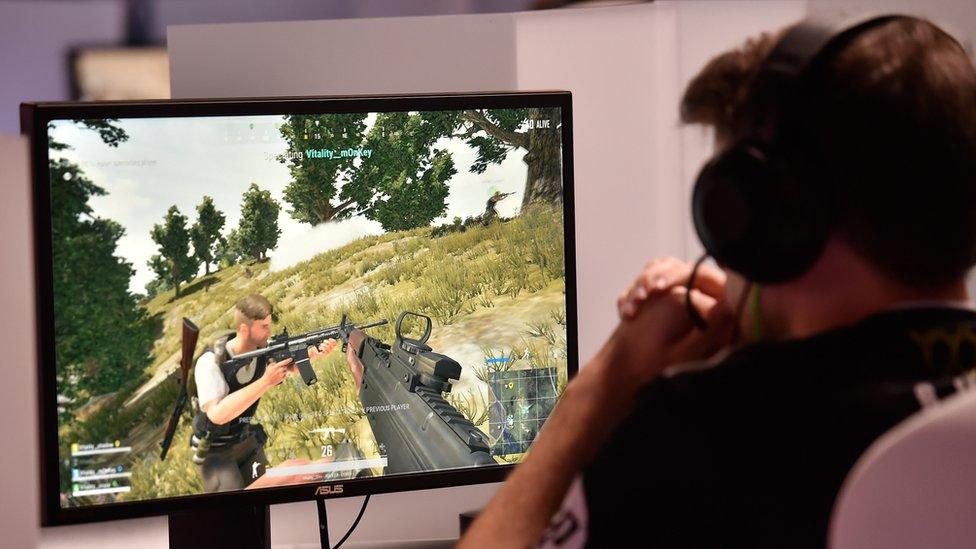Fnatic: 15 years at the top of esports
- Published
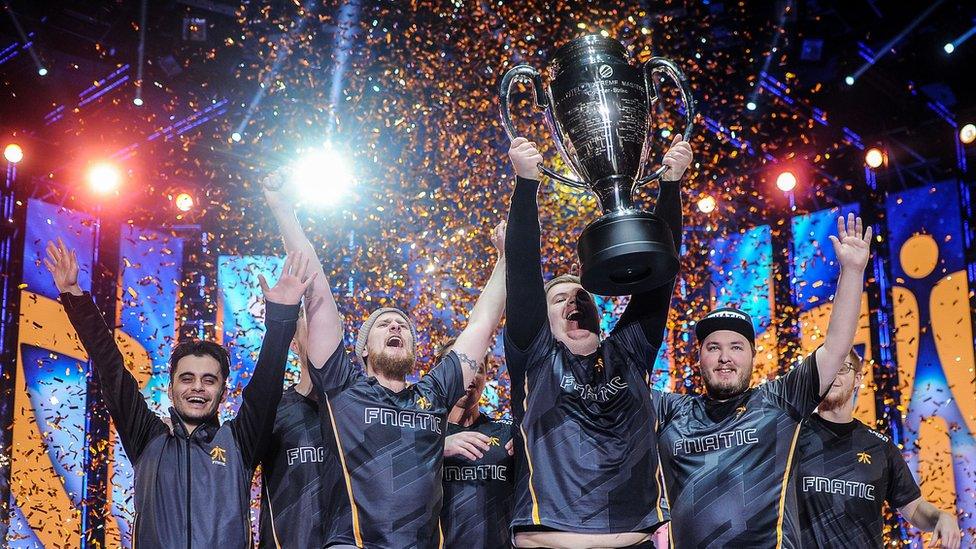
The growth in esports in the last 15 years has been "insane, honestly amazing" according to Fnatic founder Sam Mathews.
He was 19-years-old when he set-up the organisation, based in London, in 2004.
Fnatic is now one of the most recognisable teams in the world, winning trophies across the globe.
Following a recent £15 million investment, and ahead of their anniversary celebrations, Sam spoke to Newsbeat about the future.
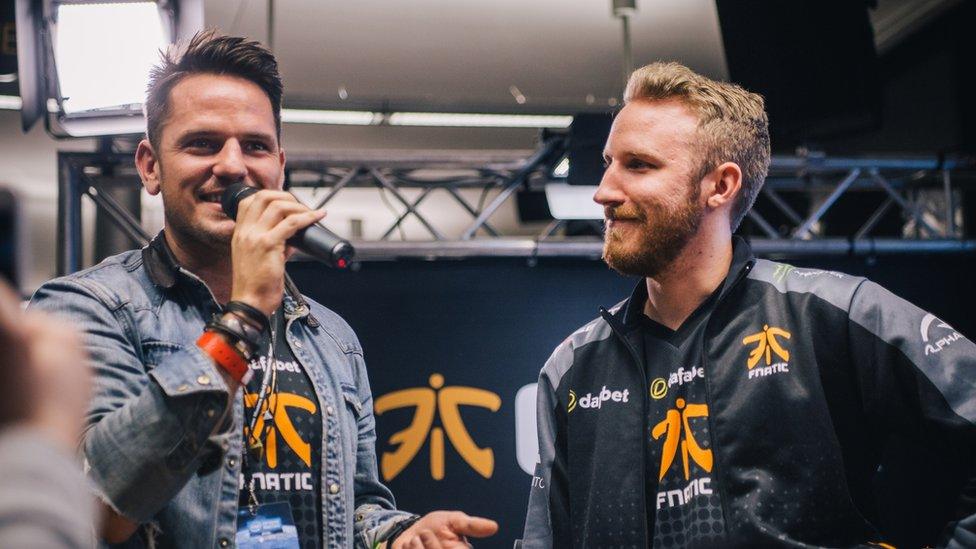
Sam Mathews (left) says there are things traditional sports can learn from the growth of esports
"When I was 19, it was a dream to be playing video games, let alone running a company where all they do is play video games," Sam says.
"I think early on we knew the vision for what was going to come, it was inevitable that the devices were going to get there and the internet connection was going to grow.
"It's taken a long time and it wasn't until streaming, YouTube and the ability to watch it live that it really started to take off.
"Because it wasn't just the thrill of playing, it was actually the thrill of watching people who are way better at this thing than you could ever be.
"I think that's what's so exciting about it now, it's the new TV."
Esports is expected to become a billion dollar industry by 2020.
Fnatic have players and teams competing in a range of titles like League of Legends, Counter Strike and FIFA,
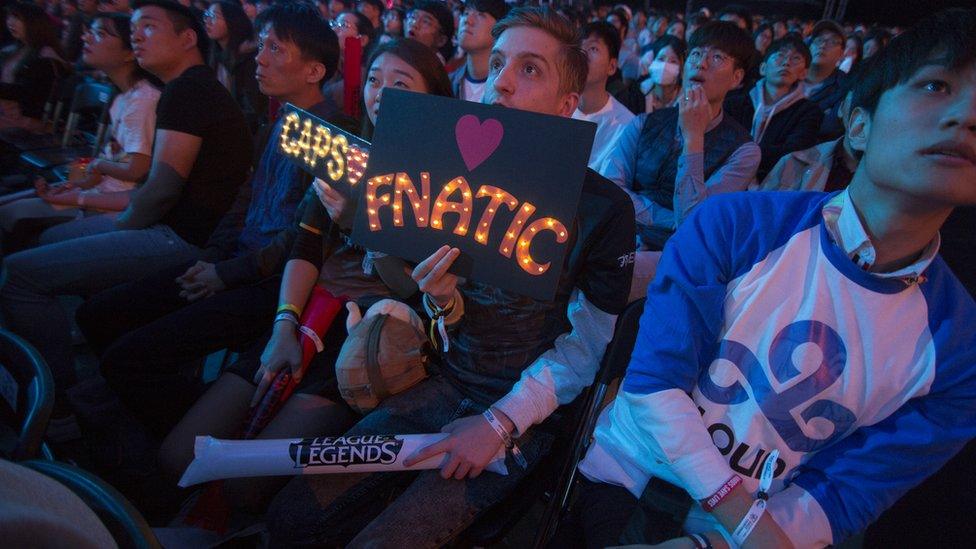
Fnatic have fans across the world
Sam says: "The scale of it now is insane though - it's honestly amazing."
Given the popularity of esports - with millions watching events online, and the amount of money involved growing all the time, more and more people are starting to pay attention.
Sam tells us: "I think inherently other sports organisers see it as a threat - and rightly so. It's like before Spotify there were CDs, and before that Vinyl.
"I think sports are getting disrupted, in a similar way, by this always online engaging experience that you get from gaming.
"I think that's something that hopefully the sports out there will start to adapt to - and they'll modify to be a part of this new wave."
With increased attention comes increased scrutiny, especially in how players are looked after and treated by esports organisations,
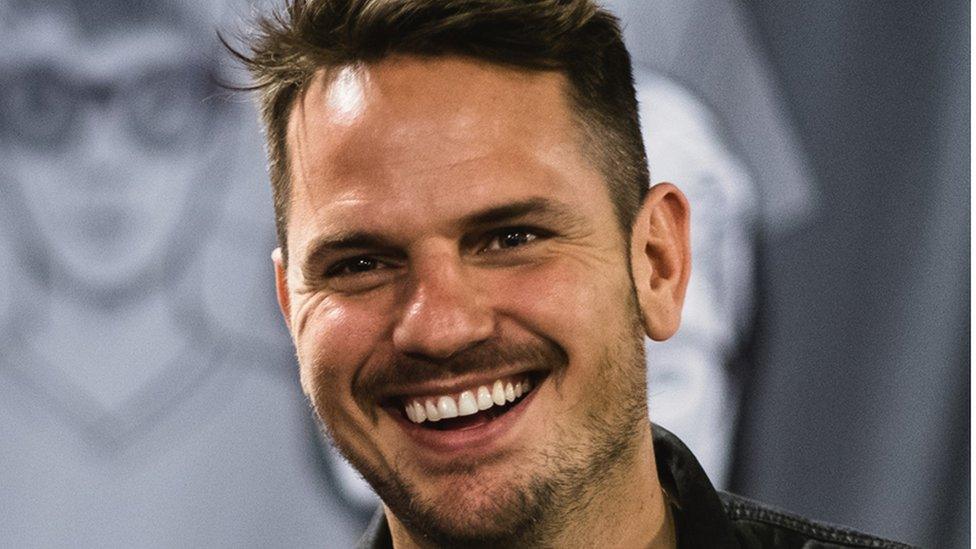
Sam Mathews set-up Fnatic in 2004 and thinks mobile esports will be the next big thing
Sam says it's something that Fnatic and other established teams are ready for: "If you look at what (game developer) Riot Games does with League of Legends.
"They're very much governing that game and they're watching everything that happens. There's a centralised contract database, there's all these things which are publicly available.
"If there was to be situations where there was, manipulation, they would clamp down on it.
"I think with newer titles, there's more risk because suddenly there's a ton of new organisations looking after players - but I think as we get keep getting bigger and there's more unions, those types of things will cease to be problems or at least be diminished."
"I don't necessarily encourage governments to try and start to regulate though, because suddenly it's like something which has been inherently free market and open ecosystem in Europe or Asia.
"If there are blockers it might start to get really hard for it to flourish as a developing sport
"Everything that's becoming high profile is going to have detractors and there's going to be things where people look upon it and are like 'is this healthy?'"
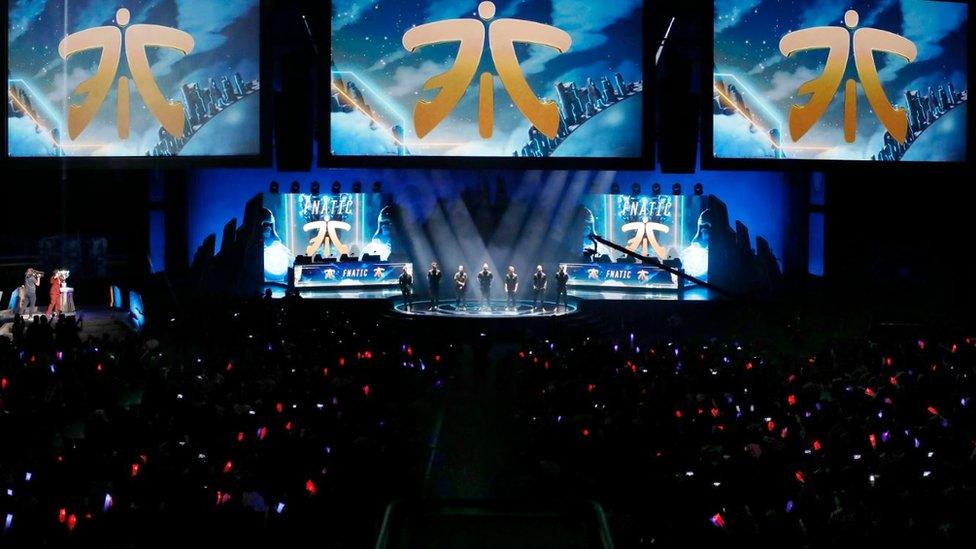
Fnatic competing at the League of Legends World Championships in 2018
15 years this week since he founded Fnatic along with Anne Mathews, Sam hopes the company will still be growing in another 15 years.
He says: "The next 15 years is all about talent, we want to be here to empower esport athletes but also creatives."
"I also think mobile esports are the future, people used to be like 'ohhh I'm only going to play on my console or my PC' but in reality, mobile is what everybody has and it's becoming more powerful.
"That's going to bring gaming to the masses, and I think for us, I'd love to be a world champion on a mobile game."


Follow Newsbeat on Instagram, external, Facebook, external, Twitter, external and YouTube, external.
Listen to Newsbeat live at 12:45 and 17:45 weekdays - or listen back here.
- Published26 July 2019
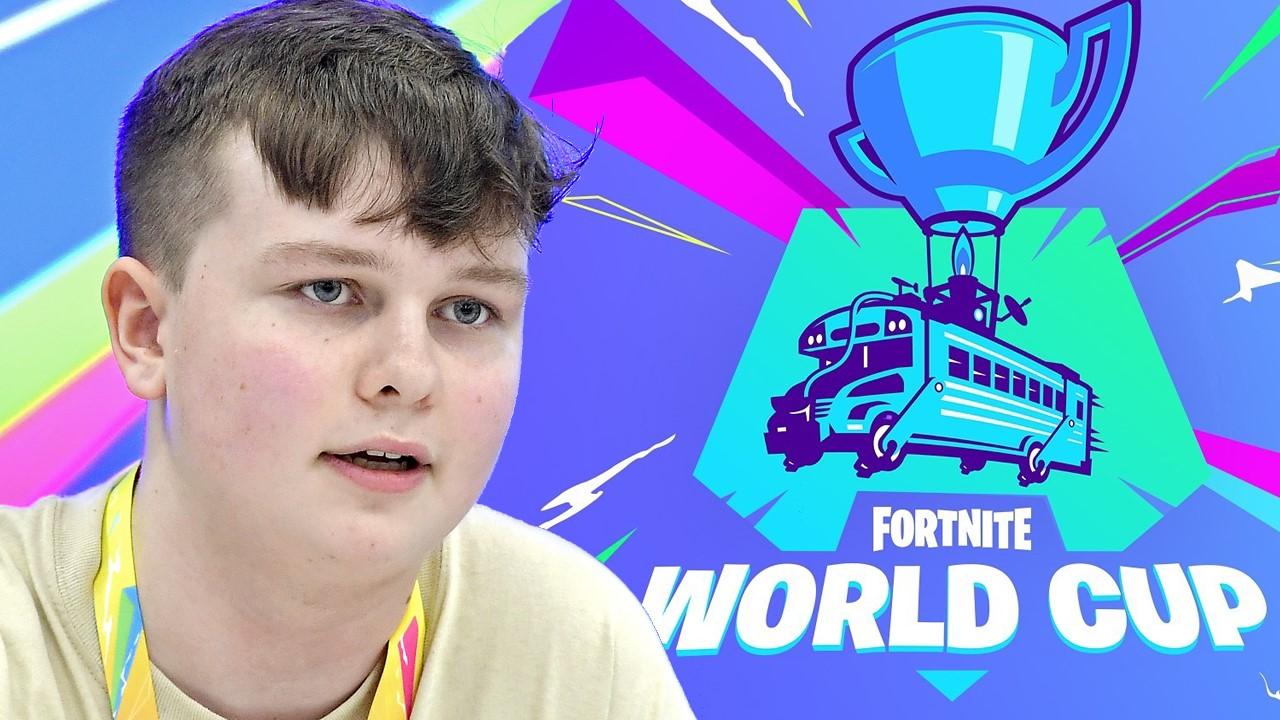
- Published24 September 2018
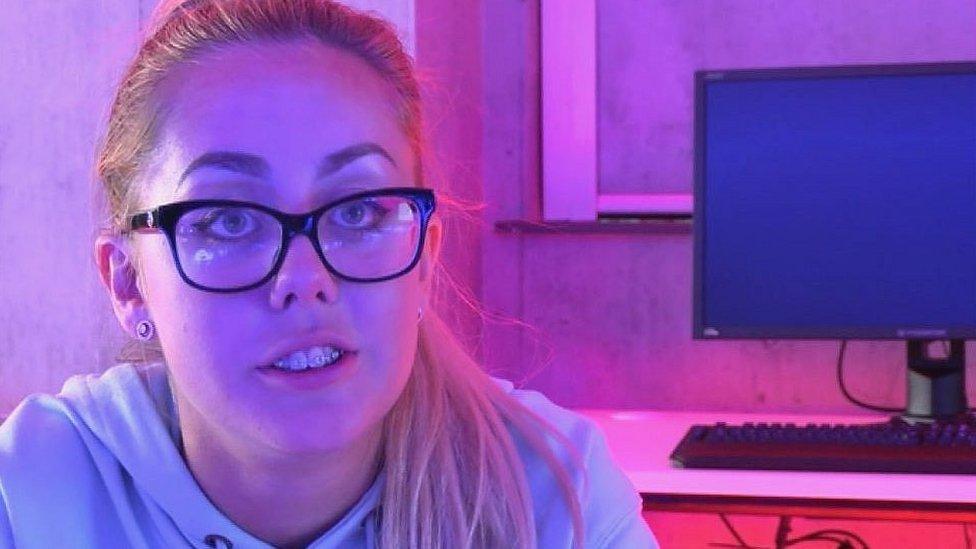
- Published6 January 2019
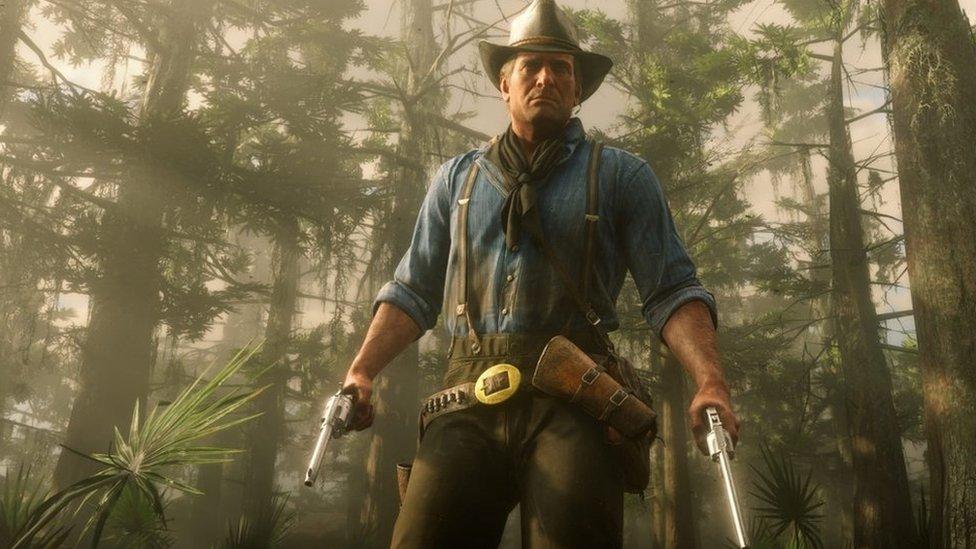
- Published13 September 2018
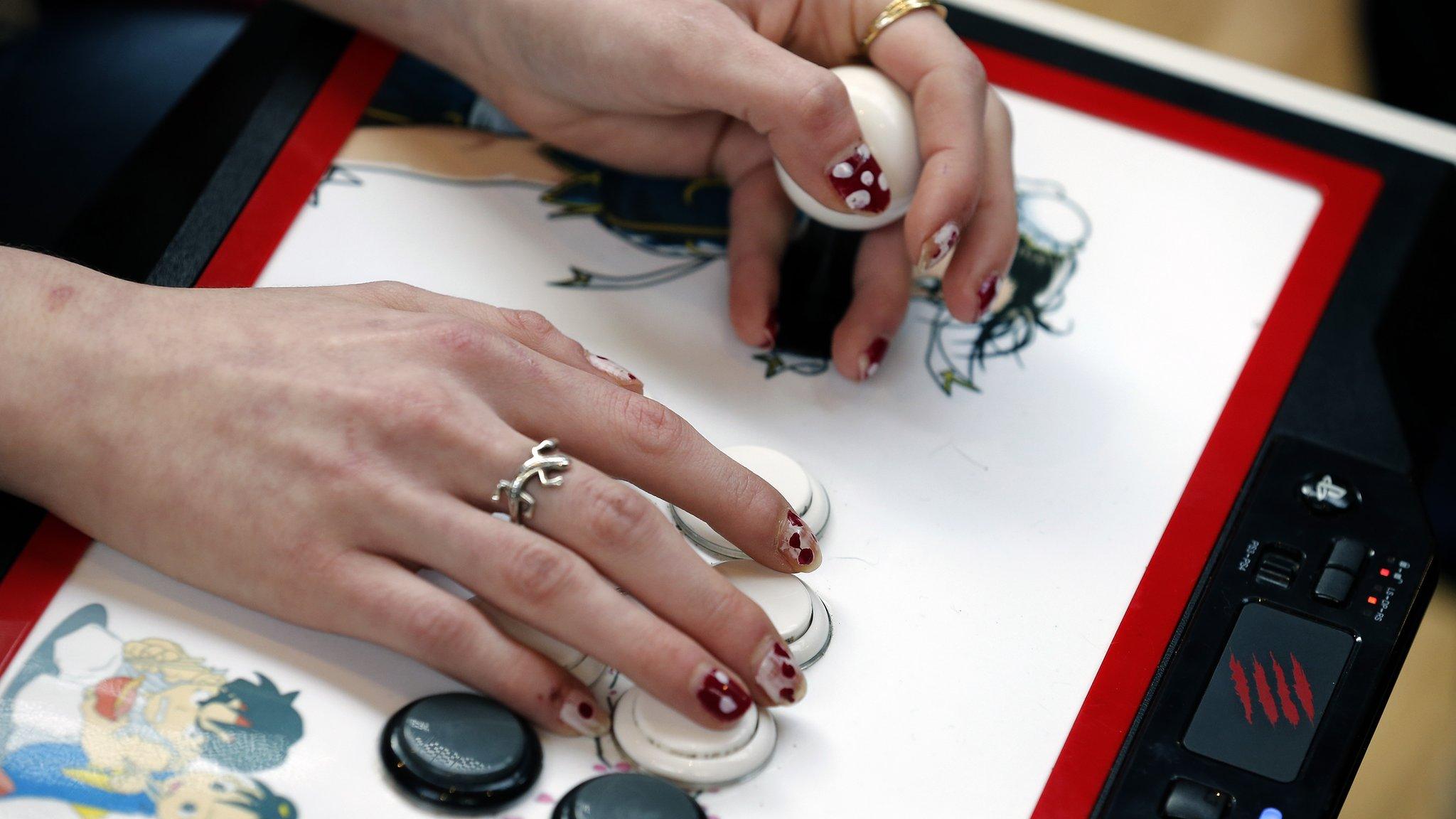
- Published4 September 2018
